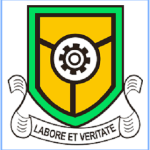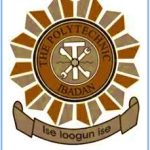Choosing to study at a polytechnic can be a smart decision if you’re someone who prefers a more hands-on, practical approach to learning.
Polytechnic programs are designed to equip you with real-world skills that are highly valued by employers, helping you get into the workforce faster.
There is a good reason why computer science is one of the most competitive certificates in Nigeria; it leads to jobs in data science, software engineering, artificial intelligence, and many other fields.
If you’re interested in a tech-savvy future and have a strong interest in computer science, pay attention! Regarding computer science programs, several polytechnics in Nigeria are doing incredibly well.
Believe me, these institutions offer practical, hands-on experiences that will prepare you for the workforce after graduation; they are not just about textbooks.
Computer Science
The field of computer science studies computers and computational systems, including how they function, how to solve issues with them, and how to develop new technologies.
Computer scientists employ mathematical algorithms, coding techniques, and programming abilities to create new software and systems.
Computer science is an interdisciplinary field that includes the study of:
- Software: The theory, design, development, and application of software
- Hardware: The performance of computer hardware
- Algorithms: The design and analysis of algorithms to solve programs
- Operating systems: The study of operating systems, networks, architecture, and graphics
- User experience: The design of user experiences
- Data science: The study of data science Artificial intelligence: The study of artificial intelligence
Top 15 Best Polytechnics to Study Computer Science in Nigeria
- Lagos State Polytechnic, Ikorodu
- Yaba College of Technology
- Abia State Polytechnic
- Federal Polytechnic, Ilaro
- Kaduna Polytechnic
- Delta State Polytechnic
- Covenant Polytechnic, Aba
- Osun State Polytechnic
- Federal Polytechnic, Nekede
- Ogun State Institute of Technology
- The Polytechnic, Ibadan
- Federal Polytechnic, Ado-Ekiti
- Kano State Polytechnic
- Kwara State Polytechnic
- Federal Polytechnic Bauchi
Why do these Polytechnics stand out
Advanced Facilities:
Most of these polytechnics have modern computer labs with up-to-date technology, ensuring students have access to the tools needed to excel.
Industry-Relevant Curriculum:
Their computer science programs are tailored to meet the evolving demands of the tech industry, which means graduates are job-ready upon completing their studies.
Experienced Lecturers:
These institutions have a reputation for hiring skilled and professional lecturers who provide in-depth knowledge and mentorship to students.
Practical Learning:
Hands-on projects, internships, and collaborations with tech companies ensure that students get practical experience in the real world.

Top 5 Polytechnics with the Best Computer Science Programs in Nigeria
These polytechnics have made great progress in offering high-quality computer science instruction, enabling students to succeed in the rapidly evolving tech sector.
1. Yaba College of Technology (YABATECH)
- Established: 1947
- Location: Lagos State

YABATECH has long been regarded as one of Nigeria’s premier polytechnics. With state-of-the-art facilities, a dynamic curriculum, and a strong focus on practical learning, their computer science program is designed to inspire innovation.
YABATECH’s partnerships with tech companies give students access to internships and real-world projects, making it a top choice for aspiring computer scientists.
Why It Stands Out:
- Modern computer labs with up-to-date software and hardware
- Strong industry ties for internships
- Emphasis on entrepreneurship and tech startups
Testimony:
“I chose YABATECH because of their hands-on approach. The labs are equipped with the latest technology, and we get to work on real projects that prepare us for the job market.”
David, ND 2 Computer Science student.
2. Federal Polytechnic, ILARO
- Established: 1979
- Location: Ogun State

Federal Polytechnic Ilaro is well-known for its strong computer science department and has established a stellar academic record.
The school makes sure that students can adjust to a variety of professions in the computer industry by emphasizing both theoretical knowledge and technical abilities.
Specialized courses in fields including software engineering, artificial intelligence, and network security are available at the Polytechnic.
Testimony:
“At Ilaro, we were pushed to think critically and apply what we learn. The lecturers were always available to guide us through challenging projects, and that gives us the confidence to excel.”
Aminat, 300L Computer Science student.
Why It Stands Out:
- Well-structured curriculum with a focus on modern computing trends
- Access to industry-standard software and hardware tools
- Dedicated career support services
3. Kaduna Polytechnic
Established: 1956
Location: Kaduna State

One of Northern Nigeria’s most extensive computer science programs is provided at Kaduna Polytechnic.
The school has included cutting-edge computing trends like cloud computing, mobile app development, and machine learning into its curriculum as part of its dedication to innovation.
Numerous tech competitions and events hosted on campus are also beneficial to students.
Why It Stands Out:
- Focus on modern technologies like AI and cloud computing
- Active student participation in national and international coding competitions
- Regular tech workshops and seminars
Testimony:
“Kaduna Polytechnic not only teaches us the fundamentals but encourages us to participate in coding challenges and hackathons, which boosts our skills and confidence.”
Balarabe, HND 2 Computer Science student.
4. The Polytechnic, Ibadan
Established: 1970
Location: Oyo State

The Polytechnic, Ibadan, a leader in technical education, provides a well-rounded computer science program that qualifies students for the competitive tech industry.
Students are prepared to work in a variety of computing environments by using current computer laboratories and emphasizing collaborative projects.
Testimony:
“The Polytechnic, Ibadan, gave me the foundation I needed to start my tech career. We had access to great resources and were encouraged to collaborate on innovative projects.”
Deborah is a graduate of Computer Science.
Why It Stands Out:
- Emphasis on practical skills and teamwork
- Access to specialized software and technical support
- Strong alumni network in the tech industry
5. Federal Polytechnic, Nekede
Established: 1978
Location: Imo State

Outstanding student assistance and a curriculum designed to meet the needs of the contemporary IT industry are two things that set Federal Polytechnic Nekede apart.
With instructors knowledgeable about the most recent developments in the field, their computer science department provides specialties in data science, software engineering, and web development, among other areas.
Testimony:
“Nekede’s computer science program is fantastic. The lecturers make complex topics easier to understand, and the school provides us with great opportunities for growth through tech competitions.”
Emeka, 300L Computer Science student.
Why It Stands Out:
- Excellent student mentorship programs
- Focus on cutting-edge technologies like data science and AI
- Opportunities to work on real-world projects
List of All Polytechnics offering Computer Science Programs in Nigeria
Admission Requirements for Computer Science Programs
To study computer science at a Nigerian university or polytechnic, you will need to cross-check during JAMB or when applying for admission.
- A minimum of five (5) credit passes, including English Language, in WAEC, NECO, GCE, or NABTEB in no more than two sittings.
- Choose the right subjects for your JAMB, O-Level, and Post-UTME.
- 200 or higher on the JAMB for university and 150 above for polytechnics, while certain schools can accept a lower score.
- Fulfilling the school’s computer science cutoff score and other prerequisites for entrance
JAMB Cut-Off Mark and Subject Combinations for Computer Science Programs
Computer Science cut-off marks: 150 to 180 for polytechnics and 200 for universities, but scoring higher in your JAMB UTME will increase your chances.
The required JAMB subject combination for Computer Science includes:
- Use of English
- Mathematics
- Physics
- Chemistry
- Or other accepted subjects
For your WAEC, ensure you have the following subjects::
- English Language
- Mathematics
- Physics
- Chemistry
- Biology
- Or other accepted subjects
Studying Computer Science without Mathematics in Nigerian Polytechnics
Generally, Mathematics is compulsory for studying Computer Science in Nigeria. Although you don’t need to be an expert in mathematics, you can still succeed in the course if you put in the necessary time and effort.
Accredited Computer Science Courses in Nigeria 2025
Nigerian Polytechnics’ computer science programs generally include a variety of courses intended to give students a solid foundation in computing, programming, and problem-solving techniques.
The following is a list of typical computer science program courses and specializations:
- Introduction to Computer Science – Basics of computing, programming principles, and information technology.
- Programming Languages – Courses in Python, C++, Java, or Visual Basic to build foundational coding skills.
- Data Structures and Algorithms – Understanding the organization of data and optimization techniques.
- Operating Systems – Learn about different types of operating systems, including Windows, Linux, and MacOS.
- Database Management Systems (DBMS) – Study database design, SQL, and management of data storage systems.
- Computer Networks – Concepts of networking, internet protocols, LAN, WAN, and network security.
- Software Engineering – Principles of designing, developing, and maintaining software systems.
- Web Development – Front-end and back-end web development using HTML, CSS, JavaScript, and frameworks like PHP.
- Cybersecurity – Fundamentals of data security, encryption, firewalls, and malware prevention.
- Artificial Intelligence (AI) & Machine Learning (ML) – Basics of AI, neural networks, and machine learning models.
- Computer Architecture and Organization – Study of internal structures of computers, including processors and memory systems.
- Cloud Computing – Introduction to cloud-based services, infrastructure, and platforms.
- Mobile Application Development – Learn how to create mobile applications for Android and iOS.
- Digital Logic and Design – Understanding logic gates, circuits, and binary systems in computing.
Electives and Specialized Courses in Computer Science Programs
By fusing theory and real-world application, these programs guarantee that graduates have the abilities necessary to operate in a variety of tech-related fields.
- Data Science and Big Data Analytics – Analyzing and interpreting large data sets using modern tools.
- Graphics and Multimedia Systems – Focus on the design and creation of graphics, animations, and multimedia content.
- Game Development – Programming, designing, and developing video games.
- Ethical Hacking and Information Security – Offensive and defensive strategies for protecting information systems.
- Embedded Systems – Study of computing systems integrated into other devices, such as IoT devices.
- Blockchain Technology – Concepts behind blockchain, cryptocurrencies, and decentralized applications.
General Ranking of Polytechnics for Computer Science Programs in Nigeria
- Yaba College of Technology (YABATECH): Ranked as one of the top polytechnics in Nigeria for computer science due to its advanced tech facilities, strong academic faculty, and high employability of graduates.
- Lagos State Polytechnic (LASPOTECH): Known for its cutting-edge computer science program with partnerships with tech companies and a strong practical approach to education.
- Federal Polytechnic, Ilaro: Recognized for its excellent ICT department and top rankings in national academic assessments.
- Kaduna Polytechnic: Offers one of the most competitive computer science programs in Northern Nigeria, emphasizing practical skill development.
- Federal Polytechnic, Nekede: High-ranking polytechnic, known for producing job-ready computer science graduates.
Source: National Board for Technical Education (NBTE) Rankings (2024).
Admission Rates for Computer Science Programs
- Average Admission Rate: Admission into computer science programs in top polytechnics is highly competitive. On average, about 10% to 15% of applicants are admitted annually into these programs, especially at institutions like YABATECH and LASPOTECH.
- Polytechnic Admission Quota: The Nigerian Joint Admissions and Matriculation Board (JAMB) allocates admission slots based on the capacity of each polytechnic’s computer science department. For example:
- YABATECH: Admits approximately 300 students annually for its computer science program.
- Federal Polytechnic, Ilaro: Admits about 250 students each year.
Source: JAMB Admission Data (2024).
Graduate Employment and Success Stories
- Graduate Employability: According to a 2024 Nigeria Graduate Employment Survey, over 70% of polytechnic graduates with a computer science degree secure a job within 12 months of graduation. Graduates from YABATECH and LASPOTECH have a higher employability rate, with around 85% of graduates finding jobs in tech-related fields or pursuing further studies.
- Tech Industry Involvement: Leading Nigerian tech companies such as Andela, Flutterwave, and Paystack actively recruit computer science graduates from polytechnics. Many graduates have gone on to become software engineers, IT consultants, and systems analysts in prominent local and international tech firms.
- Alumni Success: Notable alumni from top Nigerian polytechnics’ computer science programs include:
- John Obaro (YABATECH), founder of SystemSpecs, a Nigerian software company that developed the popular Remita payment platform.
- Iyinoluwa Aboyeji (LASPOTECH), co-founder of Flutterwave, which became a billion-dollar fintech company in Nigeria.
Source: National Bureau of Statistics (NBS), 2024 Graduate Employment Report.
Tuition and Affordability
- Average Tuition Fees: Polytechnic computer science programs are more affordable compared to universities. On average:
- YABATECH: ₦65,000 – ₦75,000 per year for computer science.
- Federal Polytechnic, Ilaro: ₦45,000 – ₦55,000 annually.
- LASPOTECH: ₦60,000 – ₦70,000 per year.
- Scholarship Opportunities: Many students benefit from scholarships such as the Federal Government Scholarship Scheme, which covers tuition for students in STEM fields, including computer science.
Source: Polytechnic Finance Office Data (2024).
Student-to-Faculty Ratio
- The average student-to-faculty ratio in Nigerian Polytechnic computer science programs is about 25:1, providing a good balance between student engagement and academic guidance.
- YABATECH: 20:1
- LASPOTECH: 25:1
- Kaduna Polytechnic: 30:1
Source: National Board for Technical Education (NBTE) Reports (2024).
Graduate Success Stories in Entrepreneurship
- Many polytechnic graduates from computer science programs have gone on to become tech entrepreneurs, launching startups in areas such as mobile app development, web design, cybersecurity, and fintech.
- Case Study: Chinedu Azodoh (Federal Polytechnic Nekede): Co-founded MAX.ng, a Nigerian motorcycle ride-hailing service, after graduating from Nekede’s computer science program.
- Case Study: Ngozi Dozie (Federal Polytechnic Bauchi): Founded Carbon, a leading digital bank in Nigeria, leveraging his background in software development.
Source: BusinessDay, Entrepreneur Success Stories (2024).
ICT Facilities and Equipment
- Computer Labs and Practical Exposure: Most top polytechnics in Nigeria have invested heavily in ICT infrastructure, including fully equipped computer labs, smart classrooms, and industry-standard software for practical learning.
- Federal Polytechnic, Nekede: Offers one of the most advanced computer science labs with high-performance computing systems for AI and data science.
- Kaduna Polytechnic: Recently upgraded its ICT facilities to include modern software development tools, thanks to a partnership with Google Africa.
Source: NBTE ICT Facilities Review (2024).
Job Placement and Internship Programs
- Internships: Over 80% of students from computer science programs at top polytechnics participate in internships during their studies, often with major tech firms like MTN, Globacom, and Google Developer Groups.
- Job Placement Rates: YABATECH’s computer science graduates have a 90% job placement rate within 6 months of graduation, particularly in Lagos, the tech hub of Nigeria.
Source: Institutional Graduate Employment Surveys (2024).
Conclusion
The first step to a successful career in computer science is selecting the appropriate institution or polytechnic.
The aforementioned universities are some of the greatest in Nigeria, providing comprehensive curricula that will provide you with the know-how and abilities required in the technologically advanced world of today.
These Nigerian polytechnics provide the ideal setting for learning and development for students aspiring to work in computer science.
These institutions are preparing the next generation of tech leaders with cutting-edge facilities and a curriculum tailored to industry demands.
Whether you’re looking to build your skills in AI, software development, or cybersecurity, these polytechnics will equip you with the knowledge and experience you need to succeed in 2025 and beyond.
FAQs
1. Where is the best place to study Computer Science in Nigeria?
Top polytechnics for computer science include:
- Yaba College of Technology (YABATECH)
- Lagos State Polytechnic (LASPOTECH)
- Federal Polytechnic, Ilaro
- Kaduna Polytechnic
These schools have strong programs, good facilities, and high graduate employability.
2. Which polytechnics in Nigeria offer computer science programs?
Polytechnics offering computer science include:
- YABATECH
- LASPOTECH
- Federal Polytechnic, Ilaro
- Federal Polytechnic, Nekede
- Kaduna Polytechnic
- Osun State Polytechnic
- Federal Polytechnic, Bauchi
3. Which is the fastest-growing polytechnic in Nigeria?
Federal Polytechnic, Ilaro is among the fastest-growing, due to improvements in facilities and high graduate employment rates. Federal Polytechnic, Nekede is also gaining ground in tech programs.
4. How long is a computer science program in a polytechnic?
- National Diploma (ND): 2 years
- Industrial Training (IT): 1 year
- Higher National Diploma (HND): 2 years
The total duration for ND and HND combined is around 4-5 years, including the IT year.
5. What are the job prospects for computer science graduates from Nigerian polytechnics?
Over 70% of graduates secure jobs within 12 months. Top polytechnics like YABATECH and LASPOTECH report 85%-90% employability rates. Graduates find jobs as software developers, network administrators, IT consultants, and cybersecurity analysts.
6. What is the cost of studying Computer Science in Nigerian polytechnics?
Tuition ranges from ₦45,000 to ₦75,000 per year, depending on the institution.
7. Are scholarships available for computer science students in polytechnics?
Yes, scholarships are available, including the Federal Government Scholarship Scheme for students in STEM fields.
8. What facilities do polytechnics offer for computer science students?
Top polytechnics provide well-equipped computer labs, smart classrooms, and access to industry-standard software.
9. Do polytechnics offer internships for computer science students?
Yes, over 80% of students participate in internships with companies like MTN, Google Africa, and Andela.
10. Can I further my education after completing a computer science program at a polytechnic?
Yes, graduates can pursue direct entry into universities for a Bachelor’s degree or enroll in specialized certification programs.
11. What are the success stories of computer science graduates from Nigerian polytechnics?
Notable alumni include:
- John Obaro (YABATECH), founder of SystemSpecs.
- Iyinoluwa Aboyeji (LASPOTECH), co-founder of Flutterwave.
